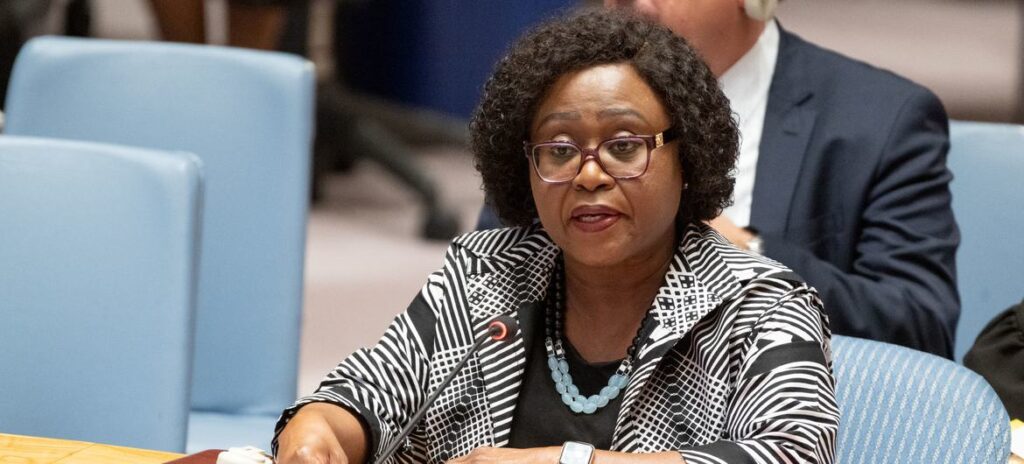The United Nations warned on Wednesday that security is rapidly deteriorating in the disputed Abyei region as armed elements from both Sudan and South Sudan continue to operate in violation of the area’s demilitarized and weapon-free status.
Briefing the Security Council, UN Assistant Secretary-General for Africa Martha Ama Akyaa Pobee said the presence of Sudan’s Rapid Support Forces (RSF) in northern Abyei and South Sudanese security forces in the south was fueling instability and threatening civilians in Abyei.
“The presence of armed actors, including the Rapid Support Forces, has resulted in illegal checkpoints in northern Abyei and contributed to elevated levels of crime,” Pobee said. “South Sudanese security forces also continue to be present in southern Abyei, in violation of the demilitarized status.”
RSF entrenchment in north Abyei
Pobee said the RSF’s growing footprint in northern Abyei, particularly around the Amiet Market — a key trade hub between the Misseriya and Ngok Dinka communities — had become a major source of tension.
“The market’s rapid growth has made it a potential flashpoint for intercommunal tensions,” she said, adding that UN peacekeepers have had to regularly engage with armed groups to remove illegal checkpoints and remind them their presence is unlawful.
Pobee said the RSF and allied groups had also detained members of community protection committees and officials appointed by Khartoum. She called for their immediate release.
South Sudanese forces in the south
The UN official said South Sudanese forces continue to occupy parts of southern Abyei, citing clashes in October among elements of the South Sudan People’s Defence Forces (SSPDF) at Athony Junction, which left several soldiers dead and forced over 100 civilians to seek refuge at UN bases.
Pobee called for the “immediate withdrawal of all armed forces and other armed actors from Abyei, in conformity with its weapon-free status.”
Fragile calm
Despite the presence of armed groups, UNISFA reported that intercommunal violence between the Ngok Dinka and Misseriya had decreased, partly due to peace initiatives such as a post-migration conference in Todach.
However, tensions remain high. Recent fighting between Ngok Dinka and Nuer communities displaced more than 150 people, who also sought refuge at UN bases.
Mission strained by Sudan conflict
Pobee said the wider war in Sudan has severely disrupted UNISFA’s operations, forcing the mission to withdraw from its logistics base in Kadugli after drone strikes and nearby fighting.
She urged both Khartoum and Juba to accelerate the implementation of security and administrative arrangements for Abyei and to facilitate the deployment of UN-formed police units authorized to help restore law and order in key areas.
The mission is also struggling with a 15% budget cut amid a liquidity crisis affecting UN peacekeeping operations, limiting its ability to protect civilians and carry out its mandate.
“Abyei is at a crossroads,” Pobee warned. “Without the withdrawal of armed forces and sustained support from both governments, the fragile peace could unravel.”
Abyei is a disputed border region between Sudan and South Sudan, rich in pastureland and believed to hold oil reserves. The area is home mainly to the Ngok Dinka, who are aligned with South Sudan, and the Misseriya, a nomadic Arab group from Sudan who migrate seasonally in search of grazing land.
The status of Abyei was one of the key unresolved issues after South Sudan gained independence in 2011. A planned referendum to determine whether the region would join Sudan or South Sudan has never been held, due to disagreements over voter eligibility and border demarcation.
Amid escalating clashes in 2011, the United Nations Security Council established the United Nations Interim Security Force for Abyei (UNISFA) under Resolution 1990 (2011) to monitor the flashpoint area and prevent renewed fighting. The mission’s mandate includes maintaining security, facilitating humanitarian aid, and supporting a joint administrative arrangement between the two countries.




